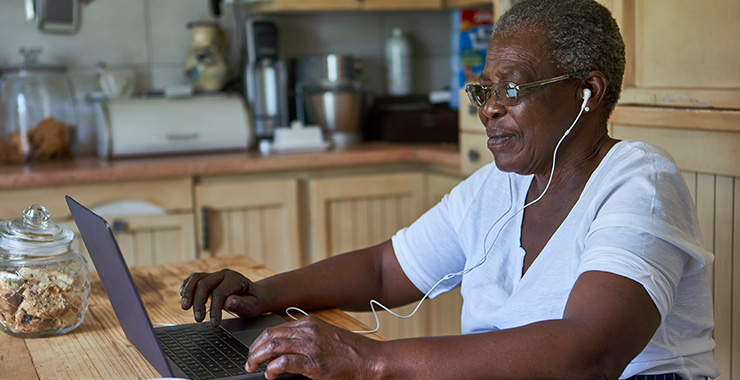

Elevating Elderly Care: Telemedicine Solutions
As the world embraces the digital age, telemedicine is emerging as a transformative solution for elderly health, offering accessible and personalized care to senior populations.
Bridging the Distance Gap
Telemedicine is bridging the distance gap in healthcare, especially for elderly individuals who may face challenges in traveling to medical facilities. Through virtual consultations, seniors can connect with healthcare professionals from the comfort of their homes, ensuring timely access to medical advice and reducing the need for unnecessary travel.
Ensuring Continuity of Care
One of the key advantages of telemedicine for elderly health is its ability to ensure continuity of care. Seniors with chronic conditions or ongoing medical needs can receive regular check-ups and follow-up consultations without the inconvenience of frequent visits to hospitals or clinics. This seamless continuity contributes to better disease management and overall well-being.
Addressing Mobility Challenges
Mobility challenges often accompany aging, making it difficult for elderly individuals to attend in-person medical appointments. Telemedicine eliminates this barrier by bringing healthcare to the fingertips of seniors. Whether they reside in assisted living facilities or in their own homes, telemedicine provides a lifeline to medical professionals without the need for physical mobility.
Enhancing Medication Management
Many seniors manage multiple medications, and adherence to prescribed regimens is crucial for health outcomes. Telemedicine platforms can facilitate medication management by providing medication reminders, virtual consultations for medication reviews, and coordination with healthcare providers to ensure seniors are following their prescribed plans accurately.
Promoting Mental Health and Social Connection
Isolation and loneliness are prevalent concerns among the elderly, impacting both mental and physical health. Telemedicine addresses this by not only providing access to mental health professionals through virtual therapy sessions but also by serving as a means of social connection. Virtual check-ins with healthcare providers contribute to a sense of community and support for seniors.
Remote Monitoring for Chronic Conditions
For seniors with chronic conditions like diabetes, hypertension, or heart disease, telemedicine offers remote monitoring solutions. Connected devices and wearables allow healthcare providers to track vital signs and receive real-time data, enabling proactive interventions and adjustments to treatment plans as needed.
Supporting Caregivers and Family Involvement
Telemedicine is not only beneficial for seniors but also for their caregivers and family members. Virtual consultations provide opportunities for family members to actively participate in healthcare discussions, gain insights into care plans, and collaborate with healthcare professionals. This inclusive approach supports a holistic caregiving ecosystem.
Challenges and Opportunities in Elderly Telemedicine
While the benefits of telemedicine for elderly health are evident, challenges such as technology literacy, access to suitable devices, and the need for personalized training must be addressed. These challenges present opportunities for innovation, creating user-friendly interfaces and tailored educational programs to empower seniors in utilizing telemedicine effectively.
The Future Landscape of Elderly Telemedicine
The future of elderly healthcare is increasingly intertwined with telemedicine. Advancements in technology, coupled with a growing aging population, will likely drive further innovations. The integration of artificial intelligence and remote monitoring technologies holds the promise of even more personalized and proactive healthcare solutions for the elderly.
To explore more about the transformative impact of telemedicine for elderly health, visit Telemedicine for elderly health.








